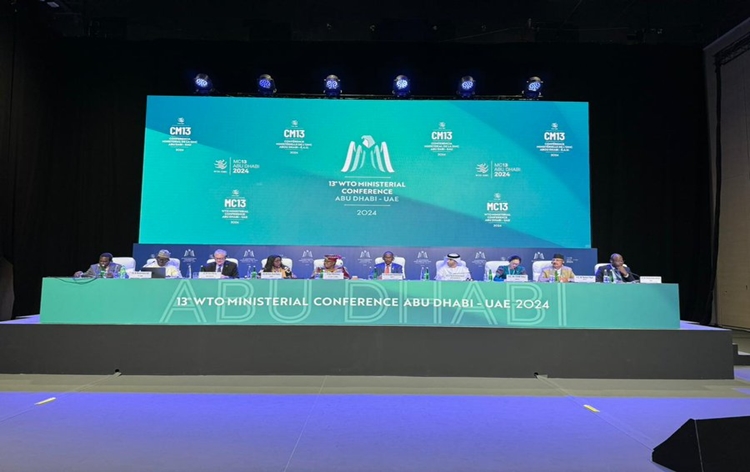The World Trade Organization’s 13th Ministerial Conference at Abu Dhabi has been extended until Friday, March 1st, to allow for further discussions and potential agreements on major topics. This decision follows consultations between the Director-General, the Chair, and Minister Facilitators.
The extension comes after calls from the Director-General for member countries to work towards solutions on ongoing negotiations. The initial closing date of February 29th, has been pushed back to allow additional time for progress.
Earlier, India’s Commerce Minister Piyush Goyal underscored the urgent need for rebuilding trust within the World Trade Organization and ensuring the effective implementation of its decisions at the 13th Ministerial Conference in Abu Dhabi. The minister stressed the restoration of the appellate body, which has been inactive since December 2019, as a crucial step towards upholding the rules-based global trade order.
The non-functionality of the appellate body, attributed to the blocking of member appointments by the United States, has raised doubts about the credibility of the WTO and its ability to resolve trade disputes. Indian minister reiterated India’s stance on the necessity of a robust dispute settlement system, emphasizing that it is essential for maintaining fairness, predictability, and effectiveness in international trade.
India recalled the commitment of WTO Members of 12th Ministerial Conference to conduct discussions with the view to have a fully and well-functioning dispute settlement system accessible to all members by 2024. India reiterated its long-standing position that a credible and reliable WTO DS system is the bedrock of an equitable, effective, secure and predictable multilateral trading system. India emphasized that the outcome of any reform process should provide for the restoration of the appellate body, which remains a top-most priority for India.
The minister also emphasized India’s commitment to principles of fair play and justice, stressing the importance of ensuring that all decisions made at the WTO prioritize the best interests of India’s farmers and fisher-folk.
India, along with South Africa, successfully blocked a key proposal led by China at the World Trade Organisation on the third day of the conference. The proposal, known as the Investment Facilitation Development Agreement (IFD), is unlikely to be included in the final outcome document of the ongoing ministerial conference.
India raised several concerns regarding the Investment Facilitation Development Agreement. Firstly, India argued that the IFD falls outside the scope of the WTO, as it is not strictly a trade issue beyond the scope of the Marrakesh agreement. Secondly, India pointed out that the IFD does not fulfill the criteria for a formal agreement as it hasn’t received unanimous support from all WTO members, thus lacking the exclusive consensus required.
This is not the first time India has voiced its opposition to the IFD. The country previously blocked the proposal in December 2023 and at the WTO’s General Council Meeting. India’s consistent stance highlights its concerns surrounding the agreement’s potential impact.
By Vinod Kumar, Dubai














